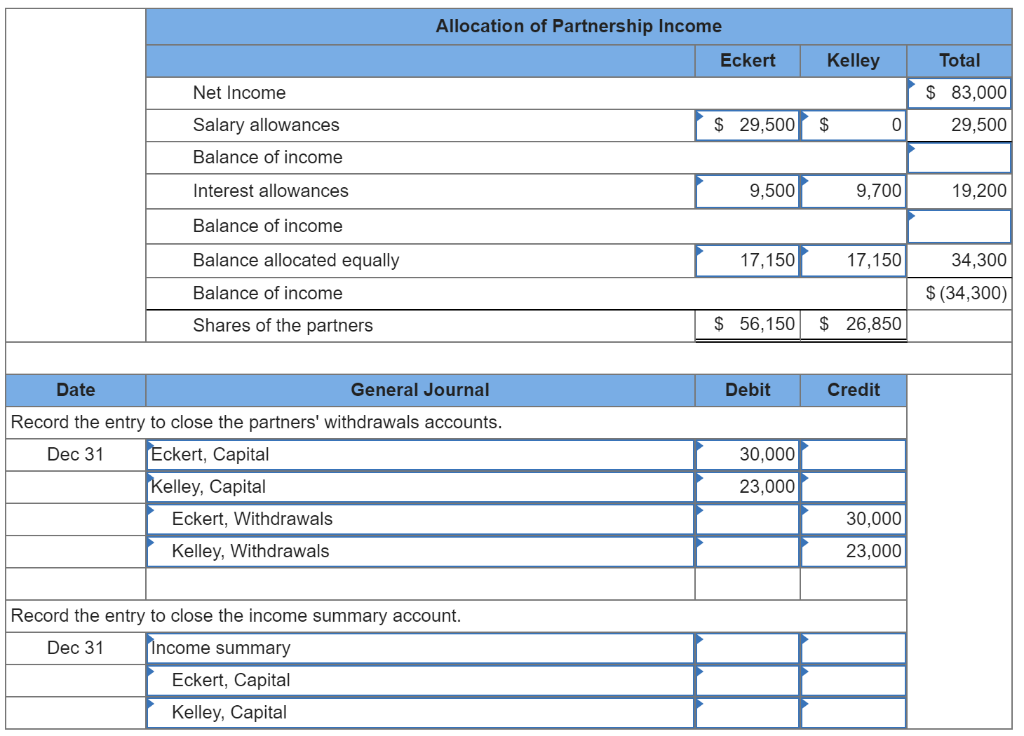Answered step by step
Verified Expert Solution
Question
1 Approved Answer
On March 1, Eckert and Kelley formed a partnership. Eckert contributed $95,000 cash, and Kelley contributed land valued at $76,000 and a building valued


On March 1, Eckert and Kelley formed a partnership. Eckert contributed $95,000 cash, and Kelley contributed land valued at $76,000 and a building valued at $106,000. The partnership also took Kelley's $85,000 long-term note payable associated with the land and building. The partners agreed to share income as follows: Eckert gets an annual salary allowance of $29,500, both get an annual interest allowance of 10% of their initial capital investment, and any remaining income or loss is shared equally. On October 20, Eckert withdrew $30,000 cash and Kelley withdrew $23,000 cash. After adjusting and closing entries are made to the revenue and expense accounts at December 31, the Income Summary account had a credit balance of $83,000. Required: 1a. & 1b. Prepare journal entries to record the partners' initial capital investments and their subsequent cash withdrawals. 1c. Determine the partners' shares of income, and then prepare journal entries to close Income Summary and the partners' withdrawals accounts. 2. Determine the balances of the partners' capital accounts as of December 31.
Step by Step Solution
There are 3 Steps involved in it
Step: 1

Get Instant Access to Expert-Tailored Solutions
See step-by-step solutions with expert insights and AI powered tools for academic success
Step: 2

Step: 3

Ace Your Homework with AI
Get the answers you need in no time with our AI-driven, step-by-step assistance
Get Started


